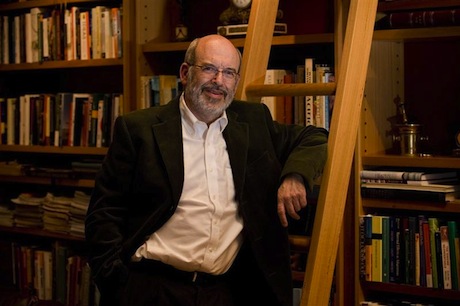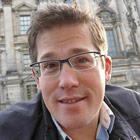 Sir Peter Gluckman, chief science adviser to the Prime Minister of New Zealand (Photo: NZ Herald)
Sir Peter Gluckman, chief science adviser to the Prime Minister of New Zealand (Photo: NZ Herald)
In the five years since he was appointed as New Zealand's first science adviser, Sir Peter Gluckman has earned a reputation as one of the world's most thoughtful practitioners at the interface between science, society and public policy. In 2009, after a distinguished career in medical research, focused on how a baby's environment between conception and birth determines its life-long health, Gluckman was invited by John Key, New Zealand's newly-elected Prime Minister, to create and lead the Office of the PM's Science Advisory Committee. As he admits: "The committee has only one member, namely me. But this was a constitutional way to ensure its independence."
Gluckman has made an enormous contribution to the development of scientific advisory institutions and processes in New Zealand, and has worked to strengthen science diplomacy and research collaboration across the Asia-Pacific region. But he's also built up an international fanbase: science policy wonks and practitioners (myself included) rush to read his latest speech, report or blogpost, knowing that he invariably has something distinctive and interesting to say. My own department, the Science Policy Research Unit at the University of Sussex, was fortunate to host one such speech a few weeks ago, on the theme of "Evidence based policy: a quixotic challenge?".
What I particularly value about Gluckman's work is that he's someone who thinks and reflects, with an unusual degree of openness, about the opportunities, constraints and dilemmas of his role. His latest contribution, in this week's edition of Nature, is a concise distillation of the insights gleaned from five years at the sharp end of science policy. These are summarised in the form of ten principles:
• Maintain the trust of many;
• Protect the independence of advice;
• Report to the top;
• Distinguish science for policy from policy for science;
• Expect to inform policy, not make it;
• Give science privilege as an input into policy;
• Recognise the limits of science;
• Act as a broker not an advocate;
• Engage the scientific community;
• Engage the policy community.
As Gluckman describes, "Five years on…I have come to understand that the primary functions and greatest challenge for a science adviser are providing advice not on straightforward scientific matters, but instead on issues that have the hallmarks of what has been called post-normal science. These issues are urgent and of high public and political concern; the people involved hold strong positions based on their values, and the science is complex, incomplete and uncertain."
There's plenty of scope to debate these ten principles but as a primer in the politics and practice of scientific advice, they are a great place to start. And Gluckman's Nature article coincides with his most ambitious project yet: at the end of August 2014, he is teaming up with ICSU (the International Council for Science) to host the first ever world summit on scientific advice in his home town of Auckland.
The summit will take place in a year when we've seen important debates in scientific advisory systems worldwide. In the UK, Sir Mark Walport is about to mark his first year as Government Chief Scientific Adviser, during which he has had to tread a careful path through controversies over bees, badgers, fracking and flooding. In Brussels, Anne Glover, Chief Scientific Adviser to the President of the European Commission, has been working tirelessly to persuade more EU member states to appoint national scientific advisers, with a view to establishing an EU-wide network. In Japan, three years on from the Great East Japan earthquake and nuclear meltdown at Fukushima, arguments continue about how to reform structures for scientific advice and risk management. And at the United Nations, a new Scientific Advisory Board, hosted by UNESCO, held its inaugural meeting at the end of January 2014.
All of this suggests that the Auckland meeting couldn't be happening at a better time. Sir Mark Walport, Anne Glover, and their equivalents from India, Malaysia, Japan, Germany, Australia and the Philippines, will be among those attending. Scientific advisers, policymakers, academics – and anyone with an interest in these debates – is invited to register, or to follow developments online. As Sir Peter Gluckman says in his Nature article, "I hope that two days of discussion between thought leaders from around the world about principles, methods, tensions and solutions from myriad contexts will make an important contribution to this rapidly growing field."
James Wilsdon is professor of science and democracy at SPRU, University of Sussex and co-editor (with Rob Doubleday) of the book Future Directions for Scientific Advice in Whitehall. He is also a member of the organising committee for the summit on "Science Advice to Governments", which takes place in Auckland from 28-29 August 2014.
.png)












